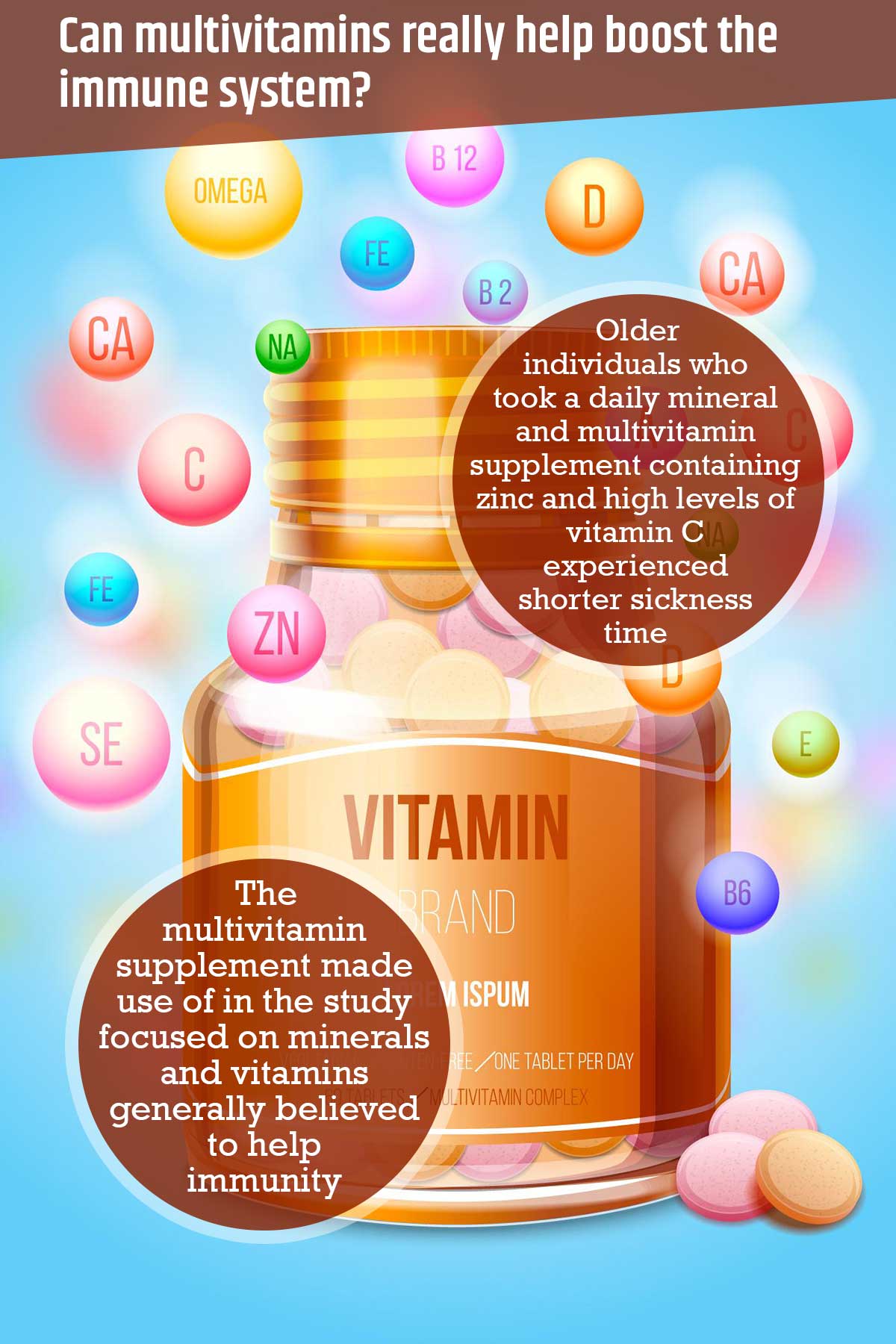Older individuals participating in a 12-week study who took a daily mineral and multivitamin supplement containing zinc and high levels of vitamin C experienced shorter sickness time with significantly less severe symptoms in comparison to individuals in a control group who received a placebo.
The study’s participants were 42 healthy individuals ages 55 to 75 and the study was designed to measure the effects the supplement had on certain immune system indicators.
Bloodstream levels of vitamins D and C and zinc were also examined while taking the supplement because these micronutrients are crucial for proper immune function.
The immune indicators, which included the ability of white blood cells to kill incoming pathogens, were unaltered in the group that received the supplement.
The multivitamin group exhibited improved zinc and vitamin C status in the blood. Interestingly, symptoms of illness reported by this group were less severe and went away a lot quicker than symptoms experienced by the placebo group.
Symptoms were reported by the same percentage of individuals in each group, but the number of sickness days in the supplement group averaged less than 3 in comparison to more than 6 for the placebo group.
The risk of vitamin and mineral deficiencies contributing to age-related immune system deficiencies increases as we age. Worldwide studies suggest more than a third of older individuals are deficient in one or more micronutrients, generally more than one.
This is more than likely contributing to a decline in the immune system, quite often characterized by elevated inflammation levels, diminished innate immune function, and reduced T-cell function.
Since multiple nutrients support immune function, older individuals often benefit from multivitamin and mineral supplements which are readily available, inexpensive, and generally regarded as safe.
The multivitamin supplement made use of in the study focused on minerals and vitamins generally believed to help immunity.
It was comprised of 400 international units of vitamin D; 700 micrograms of vitamin A; 45 milligrams of vitamin E; 1,000 milligrams of vitamin C; 6.6 milligrams of vitamin B6; 9.6 micrograms of vitamin B12; 400 micrograms of folate; 0.9 milligrams of copper; 10 milligrams of zinc; 5 milligrams of iron; and 110 micrograms of selenium.



